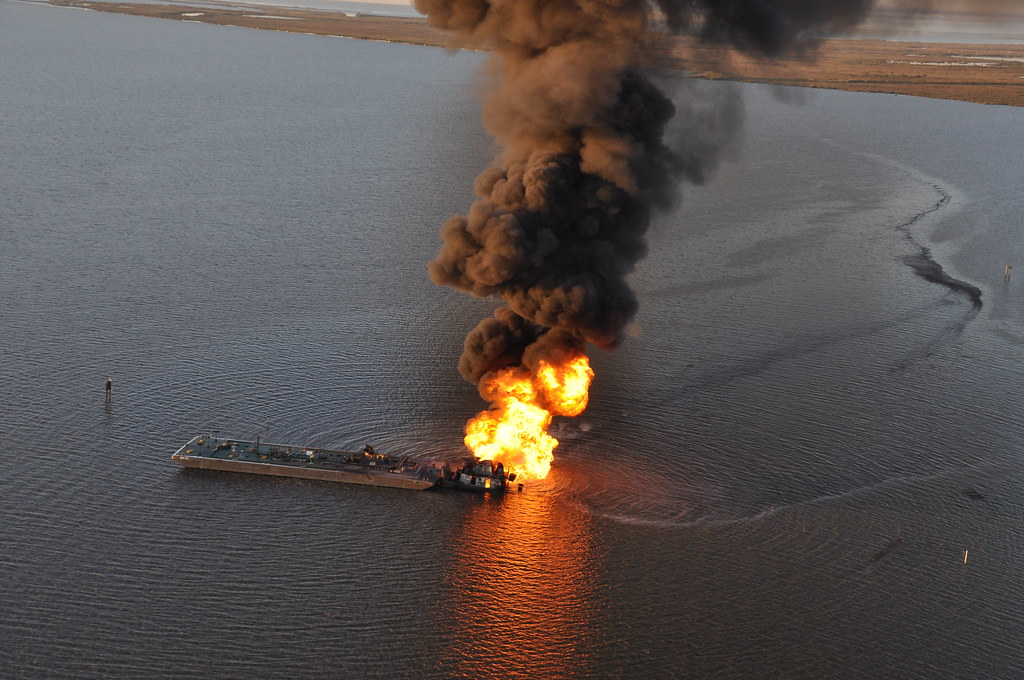In a groundbreaking study released yesterday, researchers from the University of Colorado Boulder have discovered a surprising, yet hitherto unexplored blessing of living near an oil well. The study revealed that residents of Weld County, where there are 24,000 active oil and gas wells, may have been unknowingly enjoying free-of-charge, around-the-clock sauna experiences, courtesy of the benzene emitted by the drilling operations.
The study, led by Dr. Irwin P. Looflirpa, a highly-regarded environmental health researcher, has drawn worldwide attention for its unconventional findings. Looflirpa and his team assert that the unintentional, gaseous benzene saunas cultivated by oil wells in Weld County have the potential to be marketed as an avant-garde wellness trend.
“In a time where wellness and self-care are of paramount importance, these benzene saunas have been right under our noses—quite literally,” Dr. Looflirpa stated while presenting his findings at a press conference. “The residents of Weld County have been inadvertently detoxing through regular benzene inhalation, and we believe there’s a unique opportunity here that should not be ignored.”
The study explained that benzene, a colorless or light yellow liquid at room temperature, vaporizes into the air quickly. The vapor then provides an invisible sauna effect in the surrounding environment. This unorthodox sauna experience has been hailed as the latest manifestation of the trend toward sustainable living, with environmentalists lauding the inadvertent recycling of this byproduct of the oil extraction process.
The residents of Weld County have been inadvertently detoxing through regular benzene inhalation, and we believe there’s a unique opportunity here that should not be ignored.
However, not all reactions to the study have been positive. Skeptics have pointed out that benzene, a recognized carcinogen, is known to cause harmful effects on the bone marrow and decrease red blood cell count. Yet, Dr. Looflirpa is quick to quell these concerns, comparing the benzene sauna experience to the controversial yet increasingly popular cryotherapy.
“Much like extreme cold in cryotherapy, extreme levels of benzene can indeed be detrimental,” admitted Dr. Looflirpa. “But at the moderate levels found around the oil wells, we believe the wellness benefits could outweigh these concerns. Our next phase of research will focus on quantifying these benefits.”
As this unconventional wellness trend gains traction, one can only wonder what other untapped health benefits may be lurking in our everyday environmental exposures. Indeed, the implications of this study are far-reaching and may lead us to reassess our definitions of pollution and waste. Could the next superfood be hiding in plain sight at our local landfill? Is there an untapped fitness regimen in the physical exertion of running from a swarm of locusts?
As the news of this unexpected health and wellness boon spreads, local residents are beginning to view their industrialized landscape in a new light. “I’ve lived next to this well for twenty years and never thought about it as a health spa before,” said local resident, Mildred Krumholtz, who added that she will be unearthing her long-abandoned aromatherapy oils to enhance her newfound wellness routine.
Our next phase of research will focus on quantifying these benefits.
The study also prompted a ripple effect in other industries. In the fashion world, for example, leading designers are said to be developing a line of benzene-resistant clothing in light, breathable fabrics catering for the everyday Weld County resident’s round the clock sauna needs.
Meanwhile, on Wall Street, savvy investors are speculating on the potential rise in property values in oil well-dense regions. “If this catches on, owning a home near an oil well could be as trendy as oceanfront property,” stated an anonymous hedge fund manager, who requested anonymity due to suddenly considering a real estate career in Colorado.
Yet, despite the buzz, public health experts continue to urge caution. Dr. April F. Oolish of the National Institute of Health and Wellness, has warned against the unrestrained embrace of this supposedly new wellness trend. “While the concept of repurposing industrial waste products is undeniably attractive for sustainable living, it is important to remember that benzene is, first and foremost, a toxin,” she said. “The long-term health implications of regular, low-level exposure are still not fully understood.”
In response to these concerns, Dr. Looflirpa emphasized the need for more research. “We’re not suggesting anyone should relocate to Weld County for the sole purpose of basking in the ambient benzene. This study is merely the first step towards understanding the full implications of our environmental exposures."
Despite the ongoing debate, one thing is clear: the findings of this study have irreversibly shaken up our understanding of wellness and waste. As we await the findings of Dr. Looflirpa’s next phase of research, many can’t help but muse on what other unexpected wellness opportunities we may be blissfully ignorant of. Could the smoggy haze of Los Angeles be the next big thing in skin rejuvenation? Are there sleep-inducing properties in the rhythmic sounds of a construction site? Only time will tell.
In the meantime, it appears that Weld County residents will continue to enjoy their free, 24/7 benzene sauna experience, basking in the soft, therapeutic glow of the oil well flare stacks, while the rest of the world watches, waits, and wonders.

